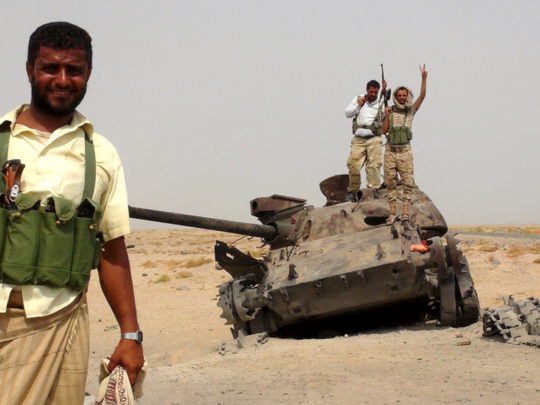
London/Aden: Fuel shortages in war-torn Yemen could cause more deaths than the continuing conflict, which rages on three days after the start of a UN-brokered humanitarian truce, an international aid agency said on Tuesday.
The lack of fuel, caused by fighting and restrictions on imports, has affected food deliveries, water supplies and health services for most of Yemen’s population, according to Oxfam.
A Saudi-led Arab coalition has been bombarding the Iranian-allied Al Houthi rebel movement — Yemen’s dominant force — since late March in a bid to reinstate exiled President Abd Rabbo Mansour Hadi, who has fled to Riyadh.
A week-long pause in the fighting was meant to have started on Saturday to allow aid deliveries, but the Saudi-led alliance said it had not been asked by President Hadi, in whose name it is acting, to stop its raids.
“In Yemen, fuel is critical,” Oxfam country director for Yemen Philippe Clerc said in a statement.
“Without adequate supplies of it, water pumps no longer operate, and the limited quantities of food and medicine in Yemen’s main ports and warehouses spoil, as they can’t be transported to the 21 million people in need of aid.”
Yemen previously imported the majority of its fuel and 90 per cent of its food, most of it by sea, but the Saudi-led coalition has maintained a blockade on imports in a bid to cut off arms supplies to rebel forces.
Al Houthi forces fired mortar rounds at an oil refinery in the southern Yemeni city of Aden on Monday, starting a huge fire, witnesses and local officials said.
The mortar barrage hit three full storage tanks, in an incident sure to add to the fuel crisis in the southern port.
After months of conflict, most of Yemen’s oil and gas industry has ground to a halt.
The attack on the refinery in the Buraiqah area sent black smoke and flames swirling high into the night sky.
“We are trying to put out the fire. The shelling targeted the tanks where we were storing diesel and fuel for local consumption in Aden. The damage is going to be very big,” one official at the facility told Reuters on condition of anonymity.
Industry sources said in April the 150,000 barrels-per-day Aden refinery had shut its operations and declared force majeure on its imports and exports due to the war.
Residents say that despite heavy shelling, locals had been able to tap the refinery’s oil and gas supplies to meet their own needs.
Nationwide fuel shortages have spread disease and suffering in a country where access to water usually depends on fuel powered pumps and over 20 million people — 80 per cent of the population — need aid, according to the UN.
Since fighting intensified at the end of March, only one fifth of the fuel needed across Yemen has entered the country, according to the UN humanitarian agency OCHA.
The lack of fuel has hit food and water supplies and left some 1.8 million children at risk of diarrhoea, while 400,000 children could become severely malnourished, Oxfam said.
At least 120,000 children could die if not provided with clean water, adequate care and nutrition, the aid agency said.
More than 3,000 people have been killed and some 1.2 million uprooted within the country due to the fighting and air strikes.
In several cities including Taiz, Aden and Lahj, fuel shortages have left millions trapped in disaster zones and unable to flee to safety, according to Oxfam, which called for a permanent ceasefire and a lifting of restrictions on imports.
“Otherwise, this ever deepening, man-made and totally avoidable humanitarian crisis will drain the country of the few resources it has and push people to the edge,” Clerc said.
“Without urgent action, shortages could kill more people than bullets or bombs.”












